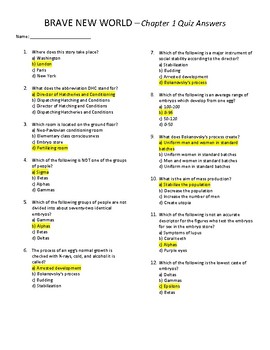
After his association with John wins him popularity, “Success went fizzily to Bernard’s head, and in the process completely reconciled him to a world which, up till then, he had found very unsatisfactory. Exploring his potential for more involves acknowledging his individuality, and the inability of the State to facilitate that individuality.īernard, on the other hand, accepts his individuality uneasily he experiences it as something that sets him uncomfortably at odds with his society, and when he has the chance to toss it aside for the sake of acceptance, he does so. By those standards, Helmholtz should be a model of happiness, but instead, he’s restless with the realization that his success might actually be a form of mediocrity. But in what?” Helmholtz makes a useful contrast with Bernard, because Helmholtz is such a standout example of “excellence” by World State standards.

What the two men shared was the knowledge that they were individuals.” Despite his prowess at Escalator Squash, his hundreds of lovers, and his social standing, Helmholtz “was interested in something else. Helmholtz, meanwhile, is truly superior in his abilities and realizes that the constraints of Society won’t let him fully exercise those abilities: “A mental excess had produced in Helmholtz Watson effects very similar to those which, in Bernard Marx, were the result of a physical defect That which had made Helmholtz so uncomfortably aware of being himself and all alone was too much ability.

The difference between the two is that, for Bernard, individuality is something rather forced upon him by his un-Alpha-like physical traits, and he responds to these by resisting aspects of the World State’s consumerist and hedonistic culture. While both men see individuality as a threat to be controlled, neither denies the existence of the individual as such.īoth Bernard and his friend Helmholtz are examples of citizens wrestling with their awareness of their individuality. He recognizes that individuality is a real, valuable thing, yet he prefers suppressing people’s individuality (while having the privilege to privately indulge his own by reading Shakespeare) in order to keep people comfortable, happy, and complacent. When the Director reprimands Bernard for unorthodoxy, he does so on the grounds that individuality undermines State stability: “We can make a new with the greatest ease Unorthodoxy threatens more than the life of a mere individual it strikes at Society itself.” Yet perhaps more sinister is Mond’s admission that, while he had the option of being sent to an island where he could pursue “unorthodox” science to his heart’s content, he ultimately preferred to be made a World Controller, in charge of determining the happiness of society at large. The difference is that Mond sees the reality and even the value of individuality, but willingly sacrifices it for the sake of an orderly State.

But through the various triumphs and downfalls of his characters, Huxley argues that even when individuality resists external pressures, it won’t thrive in a society that views individuals as dispensable and dangerous.īoth the Director and Mustapha Mond admit that human individuality is dispensable within their system. But these safeguards aren't enough for all the citizens of the World State, and they become aware of their individuality, which suggests that human individuality is irrepressible. Individualism, which encompasses an awareness of one's own opinions and abilities, the joys of personal relationship, and the accompanying sorrows of loneliness and isolation, is suppressed as aggressively as possible by the World State in order to maintain stability. That doesn't mean the elimination of all people-it means the conditioning of those people so that they don't really think of themselves as individuals. All of World State society can be described as an effort to eliminate the individual from society.


 0 kommentar(er)
0 kommentar(er)
